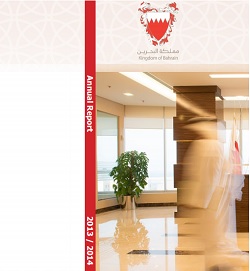On 29 May, Bahrain’s Ombudsman’s office released its first annual report to the Ministry of Interior. The government created the office in response to a Bahrain Independent Commission of Inquiry (BICI) recommendation, and presented it as proof of the improving system of justice in Bahrain. Unfortunately, the Ombudsman’s report highlights the extensive effort expended by the Bahraini government to whitewash the human rights violations that remain rampant in the country.
The report describes a Bahraini government rigorously working to fix what it considers to be the few small flaws remaining since the government violently cracked down on protests in 2011. The report closes with a series of recommendations that, while not entirely addressing the core of the human rights violations, would be a step in the right direction if the government implemented them. However, the information omitted by the report is more descriptive than the report itself.
First: the complaint process is designed to discourage people from submitting a report at all. The Ombudsman’s office is a part of the Ministry of Interior, the same department committing the majority of Bahrain’s human rights abuses. In addition to a form requiring personal information about complainants, filing requires persons submitting the complaint to sign that they are “willing to be summoned for investigation at any time”. This is a natural deterrent to many would-be complainants, who often have legitimate fears arising out of their previous encounters with the Ministry of Interior.
The road blocks to submitting a complaint aside, the report itself has presented last year’s complaint data in the most flattering terms possible. For example, the office’s statistical analysis of complaint resolution lumps two categories with two very different connotations together: “complaints resolved” and “complaints not upheld”. The report offers no clear distinction of how many cases were simply dismissed into the latter category. This grouping of resolved cases along with unresolved cases still under investigation represents over 60% of all complaints received and obfuscates the office’s record.
This lack of clarity is particularly problematic, as the report leans heavily on cherry-picked examples that the Ombudsman’s office presents as indicative of how most cases the office received were resolved. Unfortunately these cases are anything but representative, often failing to address the crux of the problem entirely. Their first example, which cites a complaint addressing the need for underage inmate education, demonstrates this phenomenon most clearly. The Ombudsman finds that detained minors are being given adequate arrangements for taking their end of the year tests. They entirely ignore the underlying problem of arresting children for using their freedom of expression in violation with the Convention on the Rights of the Child, as occurred in the case of 11-year-old Jehad al-Samea just this month, as well as in the case of 13-year-old Abdullah al-Bahraini.
Other cases simply fly in the face of evidence. The report’s example of security officials providing a blind inmate necessary medical attention was resolved very differently than many other well-known cases, including past ADHRB Prisoners of Conscience Hassan Mushaima and Abdulwahab Hussain, both of whom the government currently denies access to urgently needed medical care. The report additionally chooses to ignore pressing human rights issues like torture, which it mentions only to say that it is the office’s responsibility to investigate claims. It highlights the 12 members of the Ministry of Interior referred to criminal courts, but leaves out the broad trend of impunity for security forces, including a history of cutting sentences shortly after the initial ruling, which were prominently touted by the Ombudsman. The report does not, in fact, present any reason to believe that the office looked into any accusations of torture at all.
The Ombudsman’s first annual report left much to be desired. If the government institutes the given recommendations in good faith, that could help the currently stalled national dialogue. However, the choice to overlook core human rights concerns confirms what many Bahrainis feared about the Ombudsman’s office: that it offers only cosmetic changes and that issues the government would prefer to ignore fail to be adequately or accurately addressed.
–
Matt Starkston is an Advocacy Intern at ADHRB





